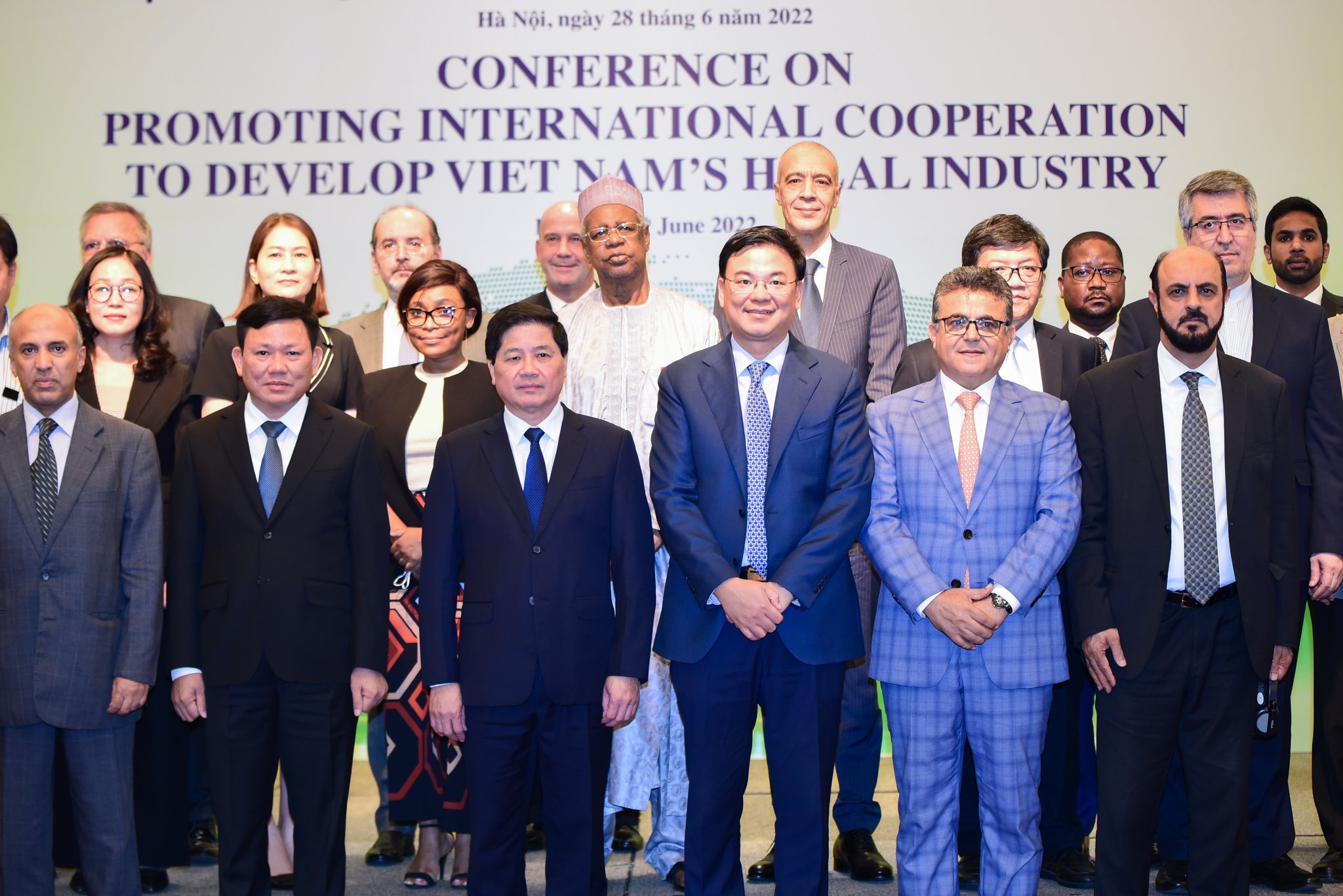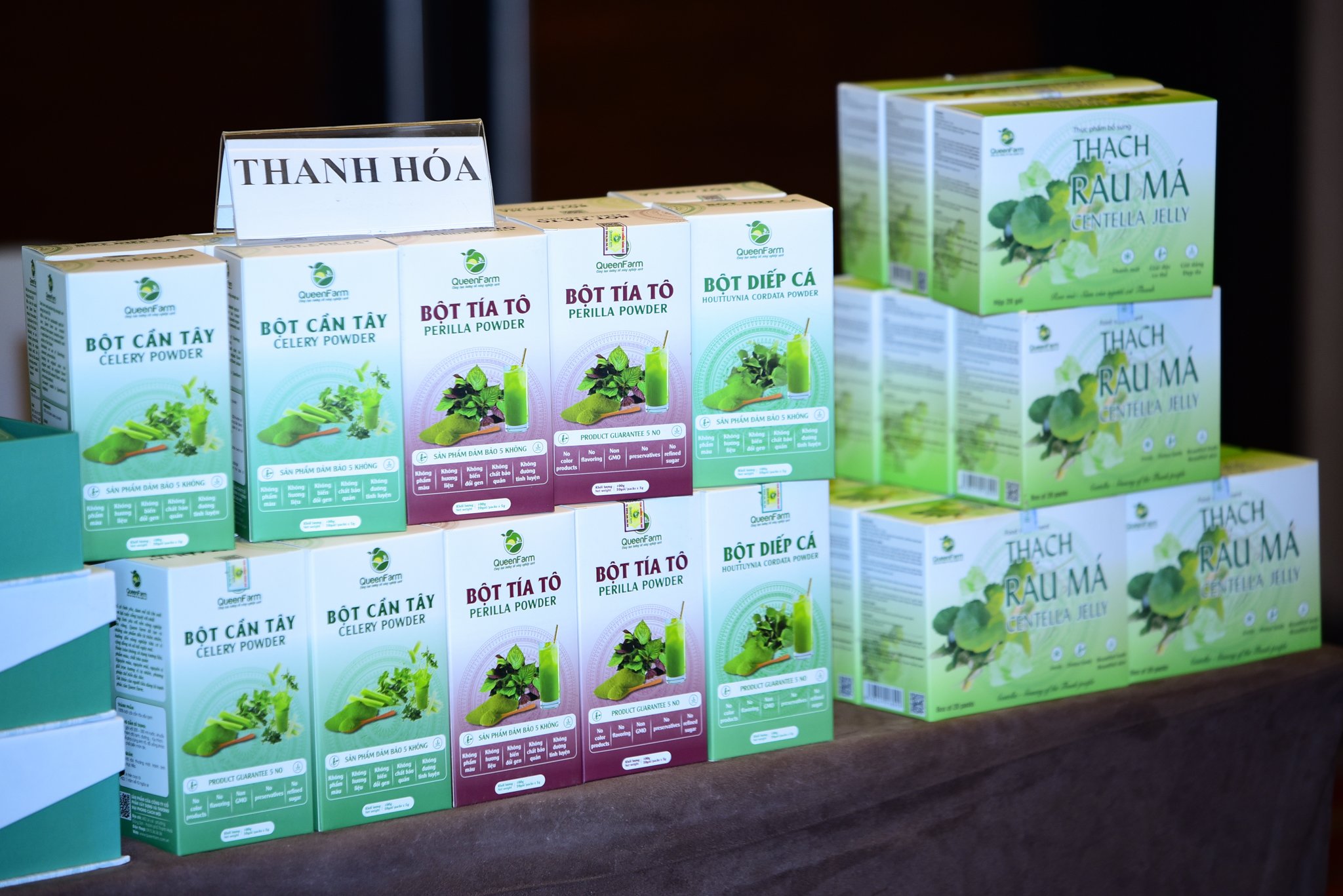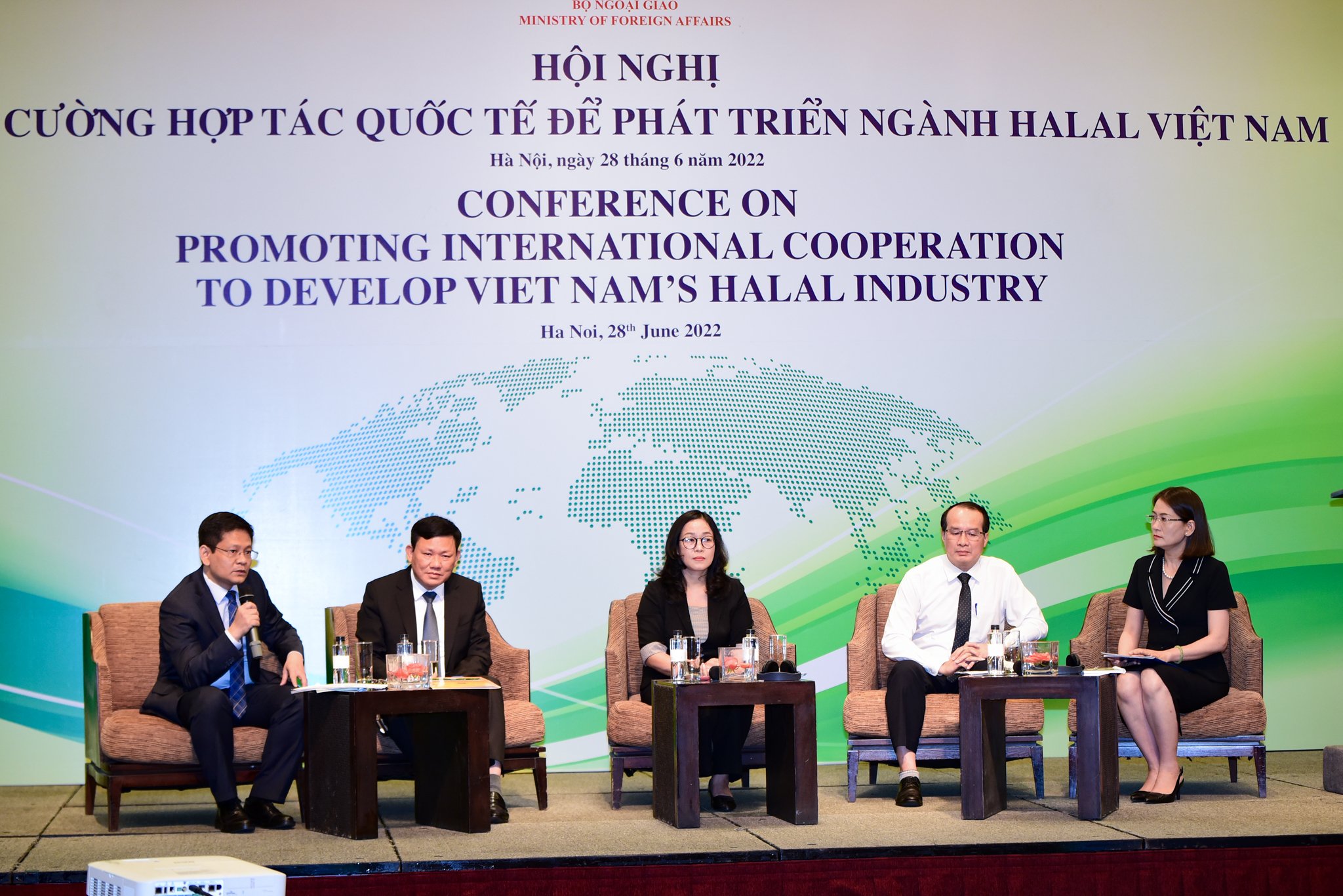June 19, 2025 | 03:40 GMT +7
June 19, 2025 | 03:40 GMT +7
Hotline: 0913.378.918
June 19, 2025 | 03:40 GMT +7
Hotline: 0913.378.918

Leaders of the Ministry of Agriculture and Rural Development, and the Ministry of Foreign Affairs take a picture with representatives of localities and countries related to Halal products. Photo: Tung Dinh.
On June 28, the Ministry of Foreign Affairs and Ministry of Agriculture and Rural Development co-held the Conference on Promoting International Cooperation to Develop Vietnam’s Halal Industry with the participation of several localities, enterprises, and representatives of countries that consume the Halal foods in Vietnam.
According to MARD, Vietnam is among the top 15 agricultural exporting nations in the world. Vietnam's agro-forestry-fishery goods have been marketed to 196 countries and territories, with their quality, value, and market position constantly increasing.
Particularly, agricultural goods from Vietnam are deemed appropriate for the Halal market. According to the Global Islamic Economy report, expenditures on Halal food would significantly climb from USD 1.4 trillion in 2020 to USD 1.9 trillion in 2024 and USD 15 trillion in 2050.
"Therefore, the worldwide market for Halal goods is ripe with opportunity, particularly for agricultural, forestry, and fisheries products and foods”, said Deputy Minister Le Quoc Doanh.

Thanh Hoa is considered a potentiality for Halal products. Photo: Tung Dinh.
Several agricultural goods from Vietnam, according to the head of MARD, have satisfied the food safety and hygiene requirements for Halal certification and are favored by Muslims.
By 2021, over fifty percent of provinces and cities have exported foods to the worldwide Halal market; a few major companies and over seven hundred and fifty small and medium-sized Vietnamese businesses have obtained Halal certification.
However, at present, agricultural, raw and semi-processed aquatic goods are Vietnam's primary export Halal foods, with eight key export categories being confectionery and cereal products, rice, aquatic products, cashew nuts, coffee, vegetables, pepper, and tea.
As of 2020, the Ministry of Foreign Affairs (MoFA) collaborated with the Ministry of Agriculture and Rural Development (MARD) and other agencies to assess the potential and prospects of the global Halal market, positioning Vietnam on the global Halal map in order to unlock the global Halal market.
"This market has enormous growth potential and is expanding rapidly, with several industries including food, pharmaceutical-cosmetics, tourism, textiles, and services, etc. Numerous nations have created policies and initiatives to methodically and fully develop the Halal sector, Halal economy, and Halal environment. However, Vietnam's position on the global Halal map is still quite modest "Deputy Minister Le Quoc Doanh added.

At the conference, localities, businesses, and regulatory agencies discussed solutions to exploit the potential of the Halal market. Photo: Tung Dinh.
To address this issue, Deputy Foreign Minister Pham Quang Hieu emphasized that the Vietnamese government has a strong interest in encouraging and facilitating the participation of Vietnamese enterprises in the global Halal market.
"The Prime Minister and Standing Deputy Prime Minister Pham Binh Minh have instructed and tasked the Ministry of Foreign Affairs with coordinating with relevant ministries, departments, agencies, and provinces to support the growth of Vietnam's Halal industry. In the long run, it is essential to boost international collaboration to develop the ability of Vietnamese enterprises to participate in the global Halal production and supply chain," said the head of the Ministry of Foreign Affairs.
According to Mr. Pham Quang Hieu, in order to access and exploit the Halal market, it is necessary to provide suggestions on mechanisms, policies, and practical implementation in addition to focusing on policy dialogue, guiding the production, processing, marketing, and Halal certification for agricultural, forestry, and fishery products.
At the same time, promoting the development of a common set of Halal certification standards of Southeast Asia - South Asia - South Pacific for agricultural, forestry, and fishery products and Halal certification activities as well as international cooperation and mutual recognition for the Islamic market in the world.
Translated by Linh Linh

(VAN) To address plastic pollution, closing the plastic recycling cycle will bring significant economic and environmental benefits.

(VAN) According to the Binh Thuan Department of Industry and Trade, in the first five months of 2025, Binh Thuan's dragon fruit export turnover increased by 20.65% compared to the same period last year.

(VAN) EU countries on Thursday gave final approval to new tariffs on fertilizer imports from Russia, a move aimed at cutting off revenue that could support Moscow’s war in Ukraine, despite concerns from European farmers.

(VAN) The working delegation from the Ministry of Agriculture and Environment conducted an important trip to the Netherlands to strengthen strategic partnerships and sustainable development in the agricultural sector.

(VAN) The letter ‘A Plea from the Ocean’ not only evokes emotion but also awakens the human conscience to the responsibility of protecting life on Earth.

(VAN) The Department of Agriculture in South Africa has announced the country’s first mass vaccination of poultry to prevent local birds from contracting avian influenza.

(VAN) Establishment of the Mekong Delta Regional Agricultural Linkage Center, aiming for a closed value chain, deep processing, trading platforms, and international market connectivity.